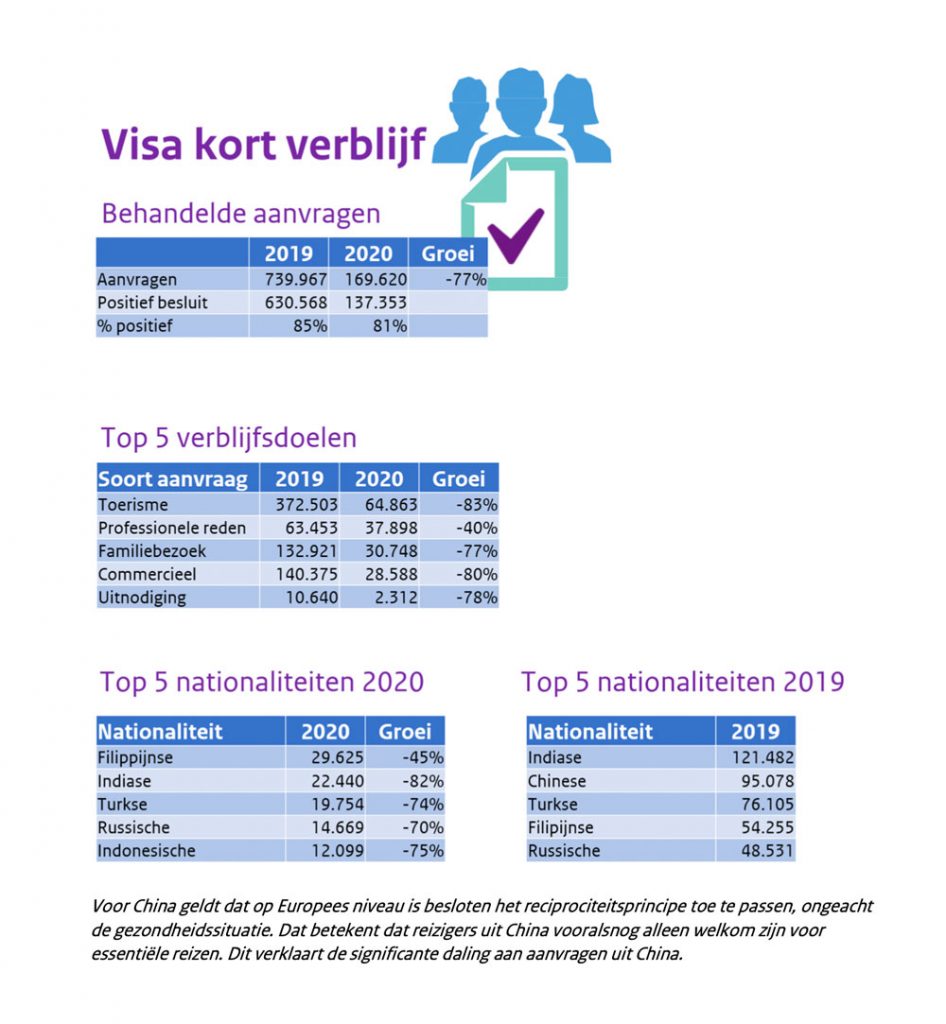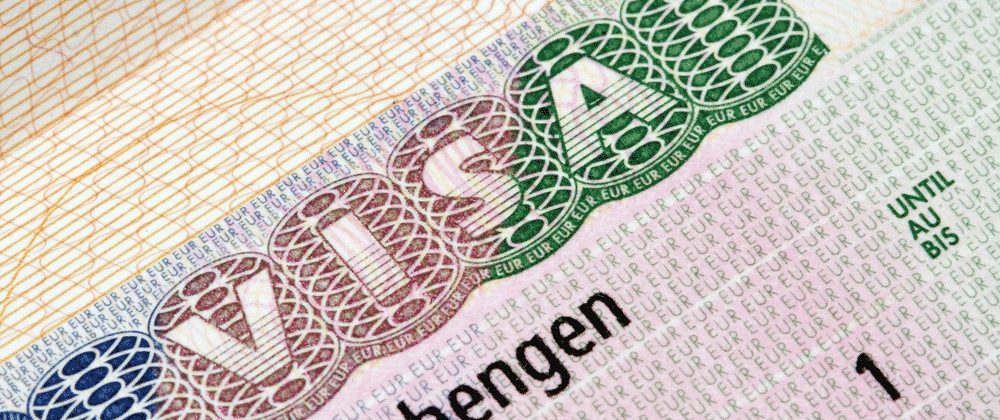In 2020 there will be considerably fewer foreign visa holders with a Schengen visa traveled to the Netherlands for a short stay. In 2019, there were still 739.967 request a visa registered, in 2020 that number fell to 169.620, a drop of a whopping 77 percent. The forecast for 2021 is that the number of visa applications will be a maximum of 145.000.
A Schengen visa is a sticker in the passport of foreign travelers visiting the Netherlands or other Schengen countries. Formally, the name of a Schengen visa is: 'Visa Short Stay Type C'. A Schengen visa gives access to the 26 Schengen Member States in Europea. You can travel through a large part of Europe with a Schengen visa without having to apply for a separate visa for each country.
Corona crisis puts an end to growth in number of visa applications
While a structural growth of 10% in the number of Schengen visa applications was visible in the last few years prior to the Corona crisis, the Corona crisis brought this to an abrupt end. In 2020, 137.335 Schengen visas were issued, compared to 630.568 a year earlier. This decrease is the result of the corona pandemic and the travel restrictions that have been imposed.
In March 2020, the entry conditions for people who wanted to travel to the Netherlands were tightened. This initially concerned a curtailment of all unnecessary travel by persons from all third countries, with the aim of preventing the spread of the COVID-19 virus. Until mid-April 2020, a flight ban was also imposed on passenger flights from high-risk areas with a high degree of contamination.
Impact of the Corona crisis on visa issuance
The Ministry of Foreign Affairs has policy and implementation responsibility for short-stay visas (a maximum period of 90 days within a 180-day period in the Schengen area). The issue of short stay visas is regulated in the Visa Code (EU Regulation No. 810/2009). On February 1, 2020, the new Visa Code came into force which a number of important changes for the Schengen visa policy contains. These changes were almost immediately overtaken by the global impact of the Corona crisis on visa issuance due to lockdowns inside and outside Europe, the EU entry ban and flight bans, which continue to some extent to this day.
Source: State of the Consular Edition 2021










